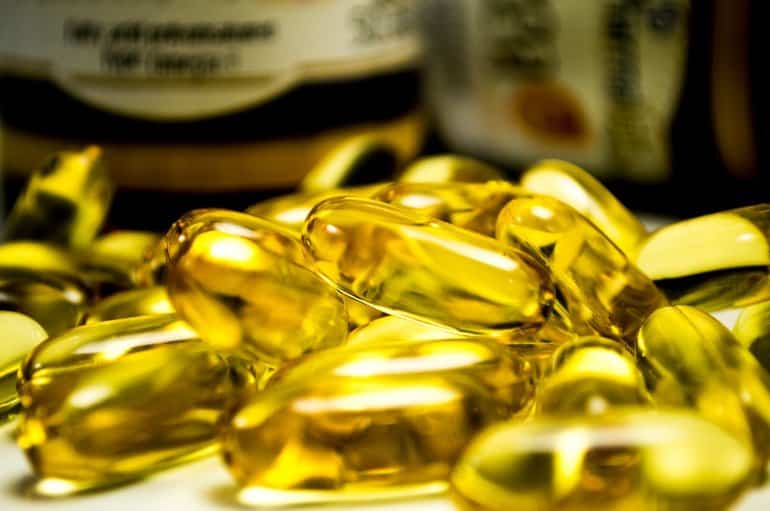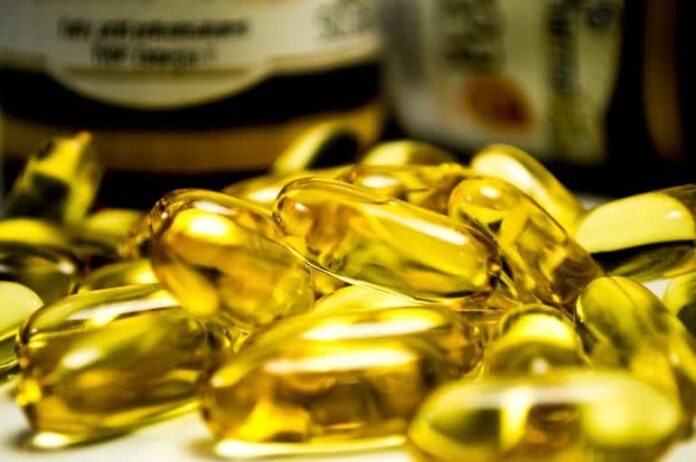[ad_1]
Summary: Taking omega-3 supplements may help to reduce muscle soreness following exercise. Researchers found omega-3 reduced inflammation and decreased muscle damage post exercise.
Source: University of Westminster
Researchers at the University of Westminster have found that taking omega-3 supplements may help to reduce muscle soreness after exercise.
The findings may be important for people who avoid exercise because of the soreness associated with it.
Omega-3 fatty acids are polyunsaturated fatty acids that play important roles in our bodies and may provide a number of health benefits. These are essential fats as our bodies cannot produce them and we must get them from our diet, primarily from oily fish. They have anti-inflammatory functions, can help maintain a healthy heart or reduce the risk of heart disease and may have incredible effects on brain and mental health.
Previous studies have looked at the effect of omega-3 fish oils on muscle damage recovery and muscle inflammation following exercise. Whilst evidence is mixed, it has been shown that sustained omega-3 intake in your diet may lead to small gains in recovery for athletes following intense exercise and possibly small gains in exercise performance too.
In this study, the researchers gave people omega-3 capsules three times a day for four weeks, or a matching placebo, to build up their levels. They then took part in a very intense exercise programme aimed at causing severe muscle pain and physiologically safe muscle damage.
The researchers then measured blood levels of inflammation and muscle damage markers, physical pain and the ability of the participants to do forceful muscle contractions every day for the next three days.

They found a lower inflammatory response and decreased muscle damage after exercise in the fish oil group. However, the omega-3 did not seem to change the amount of force reduction in future muscle contractions, suggesting that omega-3 supplementation had limited impact on muscle function, recovery and subsequent performance, but it did reduce the pain participants experienced.
Talking about the study, PhD researcher and lead author Yvoni Kyriakidou, from the University of Westminster’s School of Life Sciences, said: “Whilst the omega-3 supplementation didn’t seem to enhance performance, it did reduce the pain participants experienced which we suggest is useful in itself as people don’t like exercise because it hurts. If it doesn’t hurt as much, maybe more people will keep doing it?”
About this exercise and neuroscience research news
Source: University of Westminster
Contact: Press Office – University of Westminster
Image: The image is in the public domain
Original Research: Open access.
“The effect of Omega-3 polyunsaturated fatty acid supplementation on exercise-induced muscle damage” by Yvoni Kyriakidou, Carly Wood, Chrystalla Ferrier, Alberto Dolci & Bradley Elliott. Journal of the International Society of Sports Nutrition
Abstract
The effect of Omega-3 polyunsaturated fatty acid supplementation on exercise-induced muscle damage
Table of Contents
Background
Exercise-induced muscle damage (EIMD) results in transient muscle inflammation, strength loss, muscle soreness and may cause subsequent exercise avoidance. Omega-3 (n-3) supplementation may minimise EIMD via its anti-inflammatory properties, however, its efficacy remains unclear.
Methods
Healthy males (n = 14, 25.07 ± 4.05 years) were randomised to 3 g/day n-3 supplementation (N-3, n = 7) or placebo (PLA, n = 7). Following 4 weeks supplementation, a downhill running protocol (60 min, 65% V̇O2max, − 10% gradient) was performed. Creatine kinase (CK), interleukin (IL)-6 and tumour necrosis factor (TNF)-α, perceived muscle soreness, maximal voluntary isometric contraction (MVIC) and peak power were quantified pre, post, and 24, 48 and 72 h post-EIMD.
Results
Muscle soreness was significantly lower in N-3 vs PLA group at 24 h post-EIMD (p = 0.034). IL-6 was increased in PLA (p = 0.009) but not in N-3 (p = 0.434) following EIMD, however, no significant differences were noted between groups. Peak power was significantly suppressed in PLA relative to pre-EIMD but not in N-3 group at 24 h post-EIMD. However, no significant difference in peak power output was observed between groups. MVIC, CK and TNF-α were altered by EIMD but did not differ between groups.
Conclusion
N-3 supplementation for 4 weeks may successfully attenuate minor aspects of EIMD. Whilst not improving performance, these findings may have relevance to soreness-associated exercise avoidance.
[ad_2]
Source link













